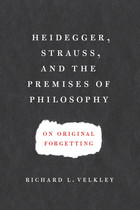

"Poetry does not impose, it exposes itself," wrote Paul Celan. Werner Hamacher's investigations into crucial texts of philosophical and literary modernity show that Celan's apothegm is also valid for the structure of understanding and for language in general. "Subject position" is widely invoked today, yet Hamacher is the first to thoroughly investigate the premises for this invocation. He demonstrates that the promise of a subject position is not only unavoidable--and thus produces more and more fundamentalisms--but is also unattainable and therefore always open to innovation, revision, and unexpected transformation. In a book that is both philosophical and literary, Hamacher gives us the fullest account of the vast disruption in the very nature of our understanding that was first unleashed by Kant's critique of human subjectivity.
In light of the double nature of every premise--that it is promised but never attainable--Hamacher gives us nine decisive themes, topics, and texts of modernity: the hermeneutic circle in Schleiermacher and Heidegger, the structure of ethical commands in Kant, Nietzsche's genealogy of moral terms and his exploration of the aporias of singularity, the irony of reading in de Man, the parabasis of language in Schlegel, Kleist's disruption of narrative representation, the gesture of naming in Benjamin and Kafka, and the incisive caesura that Paul Celan inserts into temporal and linguistic reversals.
There is no book that so fully brings the issues of both critical philosophy and critical literature into reach.

Arai Hakuseki, advisor to the sixth and seventh Tokugawa shogun, played an important role in politics between 1709 and 1716, during an era of large changes in the bakufu. He participated in major policy decisions on currency, foreign trade, and local administration, while simultaneously trying to enhance the shogun's authority both within the bakufu and as a national ruler. The following shogun retained Hakuseki's fiscal and trade policies, but promptly reversed those measures designed to make the shogun a king-like figure.
Nakai examines these successes and failures against the background of the time, especially the bifurcated and ambiguous distribution of authority between the Tokugawa shogun and the tenno in Kyoto. She also traces the influence of Confucian political theory on Hakuseki's program and on his defense of that program in the face of criticism. Nakai draws upon Hakuseki's autobiography anddiary and the reportorial letters of a contemporary for Hakuseki's political activities, and on Hakuseki's historical works and memorials for the theoretical basis for his programs, rooted in Confucianism.
Illustrative and lively translations from Hakuseki enrich the book, helping to portray a multi-faceted personality who managed to blend practical politics and Confucian idealism within the complicated and dynamic environment of the early-eighteenth-century bakufu.
READERS
Browse our collection.
PUBLISHERS
See BiblioVault's publisher services.
STUDENT SERVICES
Files for college accessibility offices.
UChicago Accessibility Resources
home | accessibility | search | about | contact us
BiblioVault ® 2001 - 2024
The University of Chicago Press









